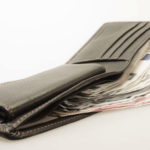쉬운 목차
How to shop smart and save money

How to shop smart and save money?
1. Weekly Grocery Shopping
One of the key strategies to save money on groceries is establishing a weekly shopping routine. Just a couple of years ago, we used to go shopping whenever we felt our pantry was running low on essentials like toothpaste, soap, toothbrushes, or toilet paper. However, we’ve made significant changes to this approach over the past year. Now, we stick to a once-a-week shopping schedule, and it’s become a regular part of our routine.
2. Setting a Weekly Budget
Once we had our weekly shopping routine in place, we gradually adjusted our budget to align it with our monthly income. By maintaining detailed household accounts, we gained an accurate understanding of our income and expenses, which allowed us to challenge ourselves by gradually decreasing our weekly grocery budget.
In our initial attempt, we set a budget of 120dollar per week. After successfully managing that for a few months, we reduced it to 100dollar. Then, it was further reduced to 75dollar, and now our goal is to stick to an 60dollar budget per week. Any money saved by reducing our grocery budget goes towards savings or paying off loans.
3. Purchase Only What’s Needed
Often, larger quantities of a product have a lower price per unit or per gram. In the past, despite being a household of only two people, we used to buy in bulk, thinking it would be more economical. We even indulged in buy-one-get-one sales. However, looking back, we realized that we often couldn’t use everything before it went bad, resulting in waste. We started to question whether it was truly cost-effective.
Now, even if it seems slightly more expensive, we buy only what we need to avoid waste. We’ve grown accustomed to this approach, and it feels refreshing to use up everything we buy. Moreover, buying only what we need encourages us to use things more sparingly.
4. Consuming After Depletion
In the past, I used to think that if I didn’t buy a new lotion before finishing the old one, it would be a disaster. I believed that my skin would deteriorate rapidly without the continuous application of the lotion, providing a dewy glow and moisture.
However, in reality, such a scenario rarely occurred. There were days when I didn’t apply lotion at all, and my skin showed no adverse effects. In fact, sometimes it even looked better without any products. Moreover, stockpiling led to excessive use, just like during bulk purchases, and I occasionally ended up forgetting the old product when buying a new one, resulting in waste.
Now, I use up everything before purchasing replacements. Even when I run out of something essential like toilet paper, I fold and place tissues on the holder for a day, resisting the urge to buy until I’ve completely depleted the existing stock. Of course, there are times when it’s not feasible to follow this practice strictly, so I make compromises based on the situation.
For instance, if there’s only one roll of toilet paper left and the product I planned to purchase is on a half-price sale, I might buy it in advance. However, before buying anything, I always consider our household inventory and the remaining grocery budget.
5. Continuous Reflection
To reduce our grocery expenses, buy only what’s necessary, and use items sparingly, constant contemplation is necessary. For example, if we frequently purchased both sliced bread and tortillas, but buying both would exceed our grocery budget, we would ponder whether using tortillas instead of bread might work. We’d try buying only bread for a while and, if it proves successful, stick to that option.
Similarly, if we were considering a kitchen sponge with a scrubbing side but found that old toothbrush heads, heated slightly with a lighter and bent, could serve the same purpose, we’d opt for the latter. We engage in these practices to maximize the use of available resources and minimize waste.
By doing so, not only have we reduced our grocery expenses, benefiting our household economy, but our living space has also gradually expanded as we’ve stored fewer items. The joy and satisfaction of coming up with creative ideas and solutions are enjoyable, making this process quite fulfilling.